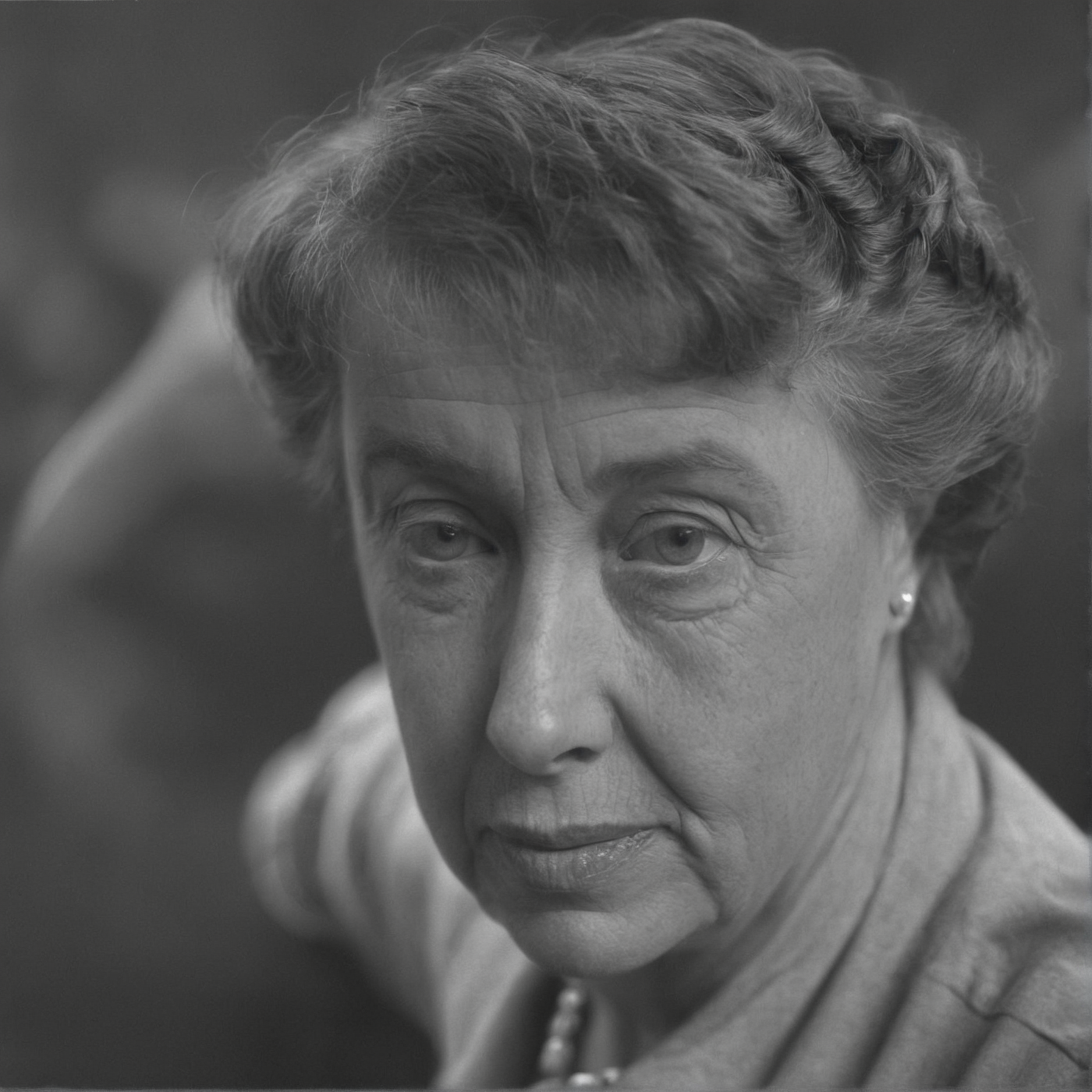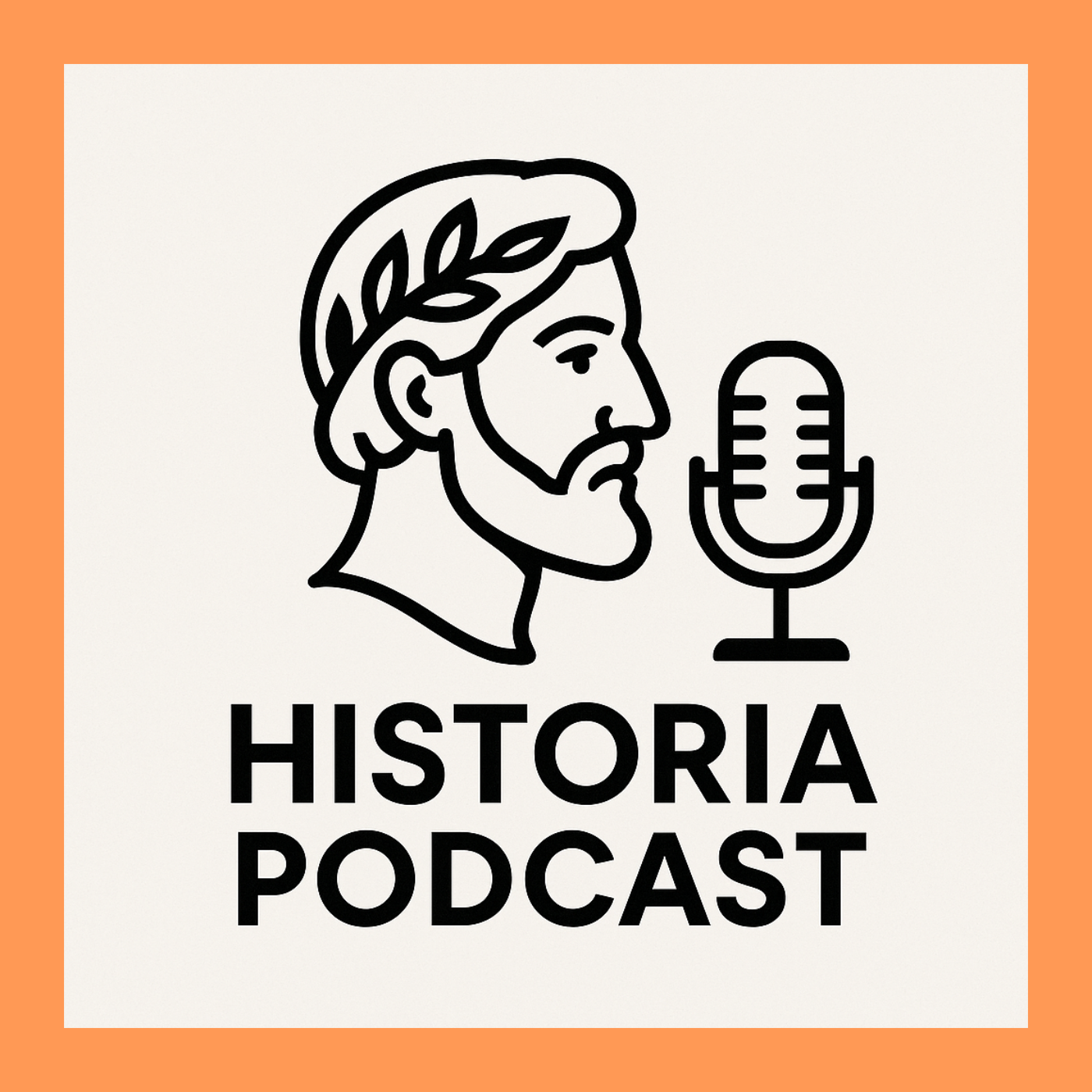
La Dama del Mundo: Un Viaje a Través de la Vida de Eleanor Roosevelt
Title: The Lady of the World: A Journey Through the Life of Eleanor Roosevelt In this podcast, we embark on a historical voyage, delving into an era of profound changes and convulsions as the world teetered on the brink of an abyss. To understand the magnitude of the figure we're exploring, Eleanor Roosevelt, we must first immerse ourselves in the crucible that forged her indomitable spirit. We find ourselves at the end of the nineteenth century, a period of dazzling opulence and crushing misery. In the United States, the golden age of great industrial magnates stood in stark contrast to the lives of millions struggling to survive under inhumane conditions. Cities grew at breakneck speed, attracting waves of immigrants in search of a better future, while the gap between rich and poor widened to unprecedented extremes. Women, largely confined to domestic life, found their voices silenced and their aspirations relegated to the background. Politics was a male-dominated realm, ruled by elites who seldom addressed the needs of the disadvantaged. Society as a whole was a tangled web of contradictions: marvelous technological advancements coexisting with deeply entrenched social injustices. It was a world that cried out for change, for a voice to rise in defense of the oppressed, for forces to shatter the established mold. In this landscape of light and shadow, on October 11, 1884, in vibrant New York City, Anna Eleanor Roosevelt was born. Her cradle was privileged, daughter of Elliott Roosevelt, Theodore Roosevelt's brother, and Anna Rebecca Hall. However, her childhood was marked by tragedy and absence. Her cold and distant mother considered her an unattractive child, a "ugly duckling," instilling profound insecurity in the young Eleanor. Her adored father, an enchanting man troubled by addictions, provided her only comfort. He called her his "little precious" and instilled in her a love for nature, books, and adventure. But happiness was fleeting. At eight years old, Eleanor lost her mother to diphtheria, and two years later, her beloved father passed away. Abandoned, she sank into profound solitude, being raised by her strict and traditional grandmother who failed to understand the sensitive and curious nature of the girl. These early years, steeped in loss and isolation, forged in Eleanor a resilient personality and a profound empathy for others' suffering. The lack of maternal affection and paternal absence drove her to seek comfort in reading and intellectual development. She was sent to a private school in England, Allenswood Academy, run by the formidable Mademoiselle Marie Souvestre. There, Eleanor flourished. Souvestre not only imparted academic knowledge but also encouraged her to think for herself, question the status quo, and develop her own judgement. This experience was a turning point in her life, equipping her with the confidence and tools necessary to navigate a world that, until then, seemed hostile. The school opened her eyes to the importance of public service and social justice, sowing the seeds of her future activism. Returning to the United States, young Eleanor, though socially active in New York high society circles, felt an increasing unease. She was not content with balls and receptions. In 1905, she married her distant cousin Franklin Delano Roosevelt. The marriage was complex, marked by Franklin's political ambitions and later infidelity, which plunged Eleanor into a period of deep introspection. Instead of sinking into bitterness, however, she found new purpose in adversity. Franklin's illness, contracting polio in 1921, leaving him paralyzed from the waist down, was another pivotal moment. While the blow was devastating for both, this event paradoxically freed Eleanor from social conventions that had tethered her. Franklin, unable to move easily, relied on her to be his "eyes and ears" in the world outside. This pushed her into an active role in her husband's political life, transforming herself into a public figure in her own right. Her achievements form a constellation of stars that illuminated the path of social justice and human rights. As First Lady of the United States, a traditionally protocolary role, Eleanor redefined it entirely. She broke with established norms, holding exclusive press conferences for female journalists, traveling tirelessly across the country to witness firsthand the living conditions of Americans, and relentlessly defending the rights of African Americans, workers, and women. She became the voice of the voiceless, the social conscience of Franklin Delano Roosevelt's administration during the difficult years of the Great Depression and World War II. Eleanor was a pioneer in the fight for civil rights. Her friendship with singer Marian Anderson is a poignant example of her commitment. When the Daughters of the American Revolution denied Anderson the opportunity to perform at Constitution Hall due to her race, Eleanor, outraged, resigned from the organization and organized a historic concert at the Lincoln Memorial in 1939, which was attended by seventy-five thousand people. This act of courage and solidarity resonated across the nation, sending a powerful message about racial equality. She was also an ardent defender of women's rights. She championed female presence in government and advocated for gender equality in employment and education. Her daily column, "My Day" (Mi Día), published in newspapers across the country, allowed her to communicate directly with millions of Americans, addressing social and political issues with unusual frankness for a First Lady. Through it, she shared her thoughts, experiences, and convictions, becoming a national confidante. After Franklin's death in 1945, Eleanor did not retire from public life. On the contrary, her influence expanded even more. President Harry Truman appointed her as the United States delegate to the United Nations, a role many considered a mere gesture of honor. However, Eleanor turned it into a platform for her tireless fight for human rights on a global scale. She was the principal instigator and architect of the Universal Declaration of Human Rights, an monumental document adopted by the United Nations in 1948. This achievement, which establishes the fundamental rights that every human being should possess, is one of the twentieth century's most important legacies and a clear demonstration of Eleanor Roosevelt's vision and determination. Her leadership in the drafting committee was crucial to overcoming ideological differences between nations and achieving consensus on such a transcendent text. It is said that, amidst heated debates, Eleanor would often smile and say "We are here to discuss what humans are, not what we might wish they could be." She continued her work at the United Nations, advocating for peace and international cooperation, until illness began to weaken her. Eleanor Roosevelt passed away on November 7, 1962, at the age of seventy-eight. Her death left a vast void in the political and social landscape, but her legacy endures to this day. Eleanor Roosevelt was not just the wife of a president; she was an unstoppable force, a woman who transcended the expectations of her time and became one of the most influential figures of the twentieth century. Her life, marked by adversity and perseverance, is a testament to the power of commitment, compassion, and faith in human dignity. Her voice, which was but a whisper in her early years, became an echo that resonated around the world, reminding us that the struggle for a more just and equitable world is a task for all, a task that she undertook with unbreakable determination until her last breath. Her story inspires us to raise our own voice, to defend what we believe in, and to leave our own mark on the relentless march of history.
" ---Escuchar el episodio
Disfruta de este episodio directamente desde tu navegador.
About This Podcast

Personajes de la historia, Lecciones de Vida de Grandes Figuras
by Manolo Gomez Mateo